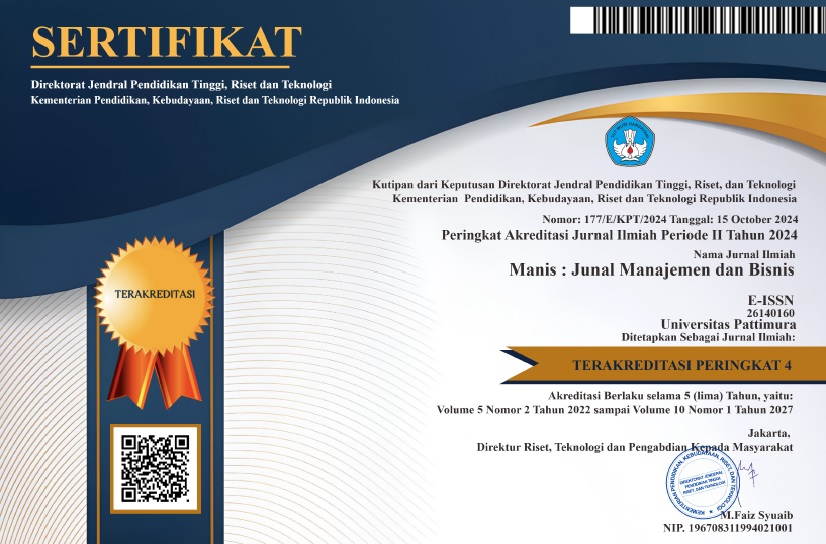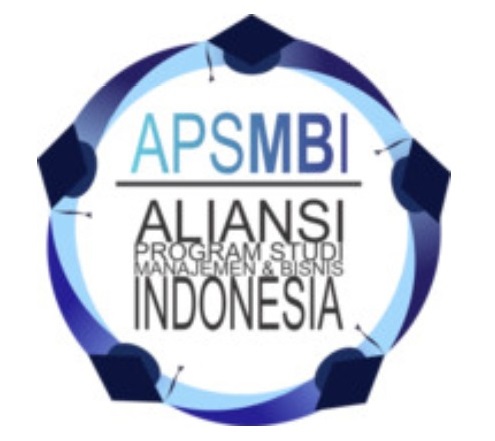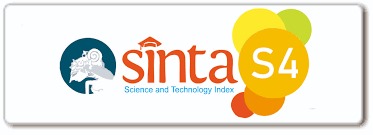MEDIA KEWIRAUSAHAAN SEBAGAI UPAYA MENUMBUHKAN POTENSI ENTREPRENEURSHIP
Abstract
The needs of students in growing the potential of entrepreneurship must adjust these needs individualized students themselves. Current circumstances show that entrepreneurial education is only textbook in nature without providing experiential learning to students. The current solution has not been able to accommodate the needs of students, especially in the era of industrial revolution 4.0. Teachers only as facilitators that become business simulation mentors further aggravate the problems in entrepreneurial education today. So there needs to be a solution that can provide experimental learning and increase teacher participation in fostering the entrepreneurial spirit of students. This research aims to develop gamification-based edukit learning media that will be implemented in high school students to develop students' entrepreneurial potential. This type of research is development research using the ADDIE method (Analysis, Design, Development, Implementation, Evaluation) by using questionnaires to collect research data.
Once implemented, this research succeeded in increasing students' interest in entrepreneurial education as a provision for the growth of entrepreneurship potential in shiva. This learning medium also succeeds in improving the activeness of teachers and students in the learning process that provides experimental learning to students. Collaboration between gamification models and edukit learning media in accordance with the needs of students' competencies in the current industrial revolution 4.0. Follow-up research is needed to be done that focuses on digitizing media developed without eliminating the activeness of teachers and students in learning.
Downloads
References
Boulven, M. A., Abdullah, S., Bahari, A., Ramli, A. J., Hussin, N. S., Jamaluddin, J., & Ahmad, Z. (2018). Model of Islamic Social Entrepreneurship: A Study on Successful Muslim Social Entrepreneur in Malaysia. MATEC Web of Conferences, 150, 10–13. https://doi.org/10.1051/matecconf/201815005093
Branch, R. M. (2010). Instructional Design: The ADDIE Approach. In Encyclopedia of Creativity, Invention, Innovation and Entrepreneurship. Springer. https://doi.org/10.1007/978-3-319-15347-6_300893
Cosenz, F., & Noto, G. (2017). Turning a business idea into a real business through an entrepreneurial learning approach based on dynamic start-up business model simulators. https://www.researchgate.net/publication/317037752
El-awad, Z. E., Gabrielsson, J., & Politis, D. (2017). Entrepreneurial learning and innovation : The critical role of team-level learning for the evolution of innovation capabilities in technology-based ventures International Journal of Entrepreneurial Behavior & Research Article information : February. https://doi.org/10.1108/IJEBR-06-2016-0177
Febrianto, I., & Inayati, R. (2020). Will the Future Economics Teacher Be Prepared to Be up against Industrial Revolution 4.0? KnE Social Sciences, 2020, 1034–1046. https://doi.org/10.18502/kss.v4i6.6660
Fellnhofer, K. (2018). Game-based Entrepreneurship Education : Impact on Attitudes , Behaviours and Intentions. 3(July). https://doi.org/10.1504/WREMSD.2018.089066
Fox, J., Pittaway, L., & Uzuegbunam, I. (2018). Simulations in Entrepreneurship Education : Serious Games and Learning Through Play. https://doi.org/10.1177/2515127417737285
Guzmán-Simón, F., García-Jiménez, E., & López-Cobo, I. (2017). Undergraduate students’ perspectives on digital competence and academic literacy in a Spanish University. Computers in Human Behavior, 74, 196–204. https://doi.org/10.1016/j.chb.2017.04.040
Hamari, J., Shernoff, D. J., Rowe, E., Coller, B., Asbell-Clarke, J., & Edwards, T. (2016). Challenging games help students learn: An empirical study on engagement, flow and immersion in game-based learning. Computers in Human Behavior, 54, 170–179. https://doi.org/10.1016/j.chb.2015.07.04
Huizenga, J. C., ten Dam, G. T. M., Voogt, J. M., & Admiraal, W. F. (2017). Teacher perceptions of the value of game-based learning in secondary education. Computers and Education, 110, 105–115. https://doi.org/10.1016/j.compedu.2017.03.008
Huseno, T. (2018). Strategi Perguruan Tinggi dalam Upaya Meningkatkan Kualitas Sumberdaya Manusia. Majalah Ilmiah Lontar, 24(2), 27–36.
Kurowska-Pysz, J. (2016). Opportunities for cross-border entrepreneurship development in a cluster model exemplified by the Polish-Czech border region. Sustainability (Switzerland), 8(3). https://doi.org/10.3390/su8030230
Kusdiyanti, H., Febrianto, I., & Wijaya, R. (2019). Enchancing teacher competitiveness of entrepreneurship through augmented reality module: Steam approach. International Journal of Scientific and Technology Research, 8(12), 3373–3381.
Mina, L. W. (2019). Analyzing and Theorizing Writing Teachers’ Approaches to Using New Media Technologies. Computers and Composition, 52, 1–16. https://doi.org/10.1016/j.compcom.2019.01.002
Muhonen, H., von Suchodoletz, A., Doering, E., & Kärtner, J. (2019). Facilitators, teachers, observers, and play partners: Exploring how mothers describe their role in play activities across three communities. Learning, Culture and Social Interaction, 21(March), 223–233. https://doi.org/10.1016/j.lcsi.2019.04.002
Nalyanya, C., Ndemo, B., & Gathungu, J. (2015). Doctoral student, School of Business.
Nurseto, T. (2010). PENDIDIKAN BERBASIS ENTREPRENEUR. Jurnal Pendidikan Akuntansi Indonesia, 1(4), 53. file:///C:/Users/WINDOWS 8.1/Downloads/954-2987-1-PB.pdf
Omri, A., & Dhahri, S. (2018). Entrepreneurship Contribution to the Three Pillars of Sustainable Development: What Does the Evidence Really Say?
Pathak, R. R., Poudel, B. R., & Acharya, P. E. (2018). Social Enterprise and Social Entrepreneurship: Conceptual Clarity and Implication in Nepalese Context. NCC Journal, 3(1), 143–152. https://doi.org/10.3126/nccj.v3i1.20256
Ramoglou, S., & Tsang, E. W. K. (2016). A REALIST PERSPECTIVE OF ENTREPRENEURSHIP: OPPORTUNITIES AS PROPENSITIES. Q Academy of Management Review, 41(3), 410–434. https://doi.org/10.5465/amr.2014.0281
Schwab, Klaus, & Samans, R. (2016). Global Challenge Insight Report : The Future of Jobs. World Economic Forum, January, 1–167. https://doi.org/10.1177/1946756712473437
Schwab, Klaush. (2016). The Fourth Industrial Revolution. http://www.weforum.org
Short, J. C., Moss, T. W., & Lumpkin, G. T. (2009). RESEARCH IN SOCIAL ENTREPRENEURSHIP: PAST CONTRIBUTIONS AND FUTURE OPPORTUNITIES. Strategic Entrepreneurship Journal Strat. Entrepreneurship J, 3, 161–194. https://doi.org/10.1002/sej.69
Subroto, W. T. (2015). Menanamkan Nilai-Nilai Entrepreneurship Melalui Pendidikan Ekonomi Pada Era Masyarakat Ekonomi Asean. Jurnal Economia, 11(1), 16. https://doi.org/10.21831/economia.v11i1.7751
Technology, I. (2016). Table of Contents Assessing Foreign Language Learning Through Mobile Game- Based Learning Environments. 7(2). https://doi.org/10.4018/IJHCITP.2016040104
Teece, D. J. (2010). Business Models, Business Strategy and Innovation. Long Range Planning, 43. https://doi.org/10.1016/j.lrp.2009.07.003
Wulansari, R., Rusnayati, H., Saepuzaman, D., Karim, S., & Feranie, S. A. (2019). The influence of scientific creativity and critical worksheets (SCCW) on creative thinking skills and critical scientific as well as students’ cognitive abilities on project-based learning work and energy concepts. Journal of Physics: Conference Series, 1280(5). https://doi.org/10.1088/1742-6596/1280/5/052039
Yeo, Y., & Lee, J. D. (2020). Revitalizing the race between technology and education: Investigating the growth strategy for the knowledge-based economy based on a CGE analysis. Technology in Society, 62, 101295. https://doi.org/10.1016/j.techsoc.2020.101295
Yulastri, A., Hidayat, H., Islami, S., & Edya, F. (2017). Developing an Entrepreneurship Module by Using Product-Based Learning Approach in Vocational Education. International Journal of Environmental and Science Education, 12(5), 1097–1109.
Zampetakis, L. A., Kafetsios, K., Lerakis, M., & Moustakis, V. S. (2017). An Emotional Experience of Entrepreneurship: Self-Construal, Emotion Regulation, and Expressions to Anticipatory Emotions. Journal of Career Development, 44(2), 144–158. https://doi.org/10.1177/0894845316640898









 This work is licensed under a
This work is licensed under a 